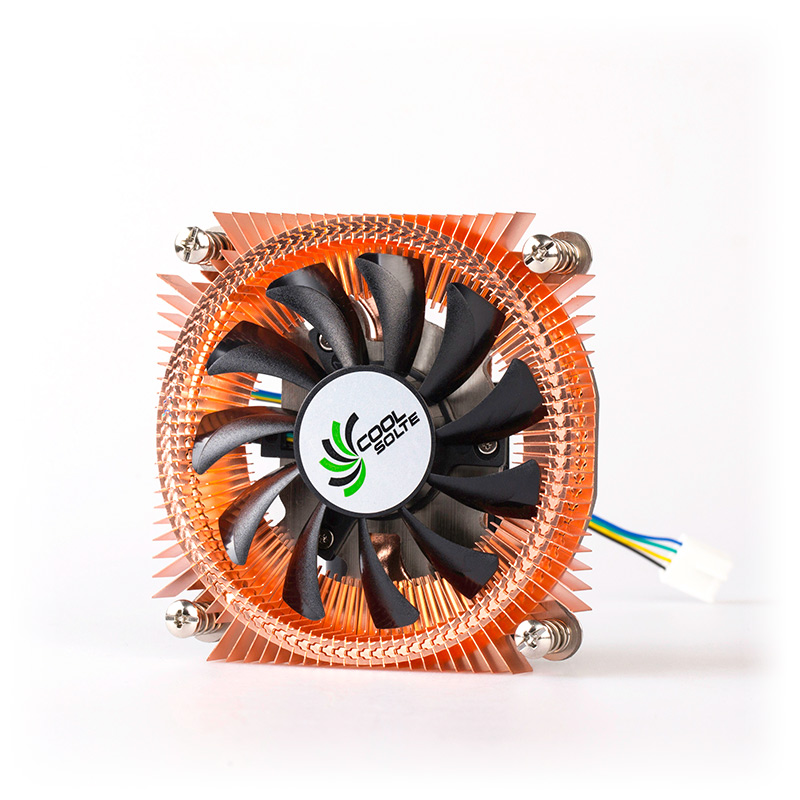

Views: 20 Author: Site Editor Publish Time: 2022-07-14 Origin: Site
Does a CPU need a heatsink? If you have this question, you should not know much about computers and electronic devices because a heatsink is a necessary part of every CPU. Why do you say so? Coolsolte, a professional CPU heatsink manufacturer, will tell you what a heat sink is and why a CPU needs one with this article.
What is a heat sink?
The role of a heat sink can be found in its name; it is a device designed to extract heat from the vital components in your computer. When running, your computer hardware can get very hot, and the purpose of a heatsink is to take the heat away and dissipate it before the components get too hot. They are often found on processors and graphics cards, the larger heat generators in PCs. Given that these components are costly in the higher ranges keeping them cool is a top priority!

Heat sinks are available in a variety of cooling methods.
Passive Heat Sinks
Passive heat sinks look a bit like radiators. Their conductive material means they can easily carry heat away from the components that need to be cooled. These heat sinks are reliable because they are technically not subject to failure. In addition, they provide a silent cooling solution for hardware due to the lack of fans. Unfortunately, since there is no fan, it must cover a large surface area to help dissipate heat. Passive heat sinks require good space and airflow to ensure they work in the best possible way.
Active Heat Sinks
Active radiators are more common in computers. Not only do they carry away heat, but they can also dissipate it on their own, allowing them to work almost independently. The most common active heatsinks use fans to dissipate heat. Ideally, these fans blow heat into the airflow and then carry it out of the machine. They are very efficient in their own right, but if the fan fails or gets clogged with dust, it becomes much less efficient.
However, ordinary air dissipation cooling may not meet the cooling needs of people with a high demand for computer computing power and processing power. Then we can also choose liquid cooling. This is the case of using a composition containing a coolant stream to cool it, which carries heat away from the processor. The coolant then carries this heat and deposits it into a heat sink cooled by a fan. They are compelling in terms of heat dissipation, but they are also relatively expensive.

Why do CPU need heat sinks?
The CPU is the core processing element of your computer. You could say that the computer's ability to process data depends on the function of the CPU, and the CPU generates a lot of heat when running. Suppose you remove the heatsink from your computer and start it up. In that case, you may see it working for a few seconds to a minute before the computer automatically shuts down. This is because the processor has reached a critical heat level and causes the computer to shut down suddenly. If you're "lucky," the processor has a built-in safety lock that prevents it from burning itself out. If you are not, the processor is now fried and unusable!
That's why when users find that their processor or graphics card is getting very hot, a standard troubleshooting solution is to check the fan on it. If the heatsink is not operating optimally, the processor will overheat, leading to crashes, blue screens of death, and sudden shutdowns and reboots.
So if you want your computer to maintain efficient processing power for a long time, having a good heatsink for your CPU is a must. Because the CPU will undoubtedly run hot, and the heat sink does not cool, this heat is not likely to dissipate itself in a short period, which means that if the CPU is not equipped with a heat sink, working for a certain period will certainly overheat automatically stop working or burn out.
Now you should know the "CPU needs a heatsink?" How to answer this question. If you want to know more about heatsinks or buy custom heatsinks, please contact Coolsolte, your best heatsink supplier!